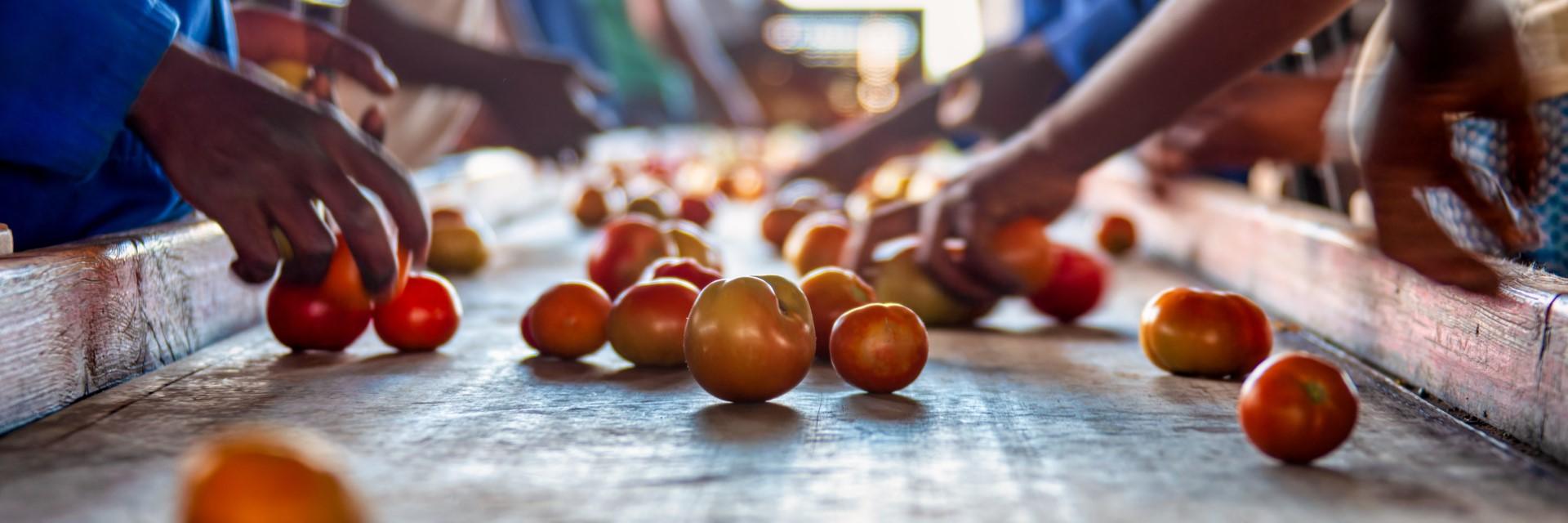AFRICA FOOD SYSTEMS FORUM 2025 –
SPECIAL EVENT:
SAHEL GOVERNMENT–UN FOOD SYSTEMS TRANSFORMATION ALLIANCE
Opening Remarks
By
Mr. Claver Gatete
United Nations Under-Secretary-General and
Executive Secretary of ECA
Dakar, Senegal
02 September 2025
Excellencies,
Honourable Ministers,
Distinguished Delegates,
Colleagues from the United Nations system,
Representatives of our development partners,
Ladies and Gentlemen,
It is a great honour to join you this morning here in Dakar for this important event on the Sahel Government-UN Food Systems Transformation Alliance.
I bring you greetings from the Secretary-General of the United Nations, who wished very much to be with us today.
However, due to circumstances beyond his control, he could not join, but he has asked me to convey his full support and commitment to the success of this Alliance.
I wish to begin by expressing my deep appreciation to the Government of Senegal for hosting us with such generosity, and to our partners across the UN system and beyond who have worked tirelessly to bring this gathering together.
Allow me also to recognize the presence of our distinguished ministers from the Sahel, our colleagues from international financial institutions and our partners from civil society, youth and the private sector.
Your commitment to the transformation of the Sahel speaks volumes.
Excellencies,
Distinguished Delegates,
We meet at a time when the global context could not be more challenging.
Across the world, food insecurity has reached alarming levels, with almost 700 million people facing undernourishment in 2024, which is among the highest in decades.
Climate change is no longer a distant threat; it is already here, disrupting harvests and supply chains.
And rising debt burdens have further narrowed the fiscal space of many developing countries, limiting their ability to invest in resilience.
Against this backdrop, food systems transformation is a global imperative and a cornerstone for peace, stability and sustainable development.
With the fastest growing population in the world, Africa’s food demand is projected to triple by 2050.
However, the continent also possesses 60% of the world’s arable land and immense potential in renewable energy, digital innovation and intra-African trade through the African Continental Free Trade Area.
If these resources are harnessed, Africa can emerge as a breadbasket for the world.
And central to this story is the Sahel which stretches across ten nations, with 300 million citizens and endowed with fertile soils, rich ecosystems and a youth bulge that makes it one of the most dynamic regions on earth.
Yet, it remains paradoxically dependent on food imports and spends close to one billion dollars a year to meet its needs.
The question before us today is therefore a simple but urgent one: how can a region so rich in agricultural promise remain so dependent on external supplies?
The answer lies in transformation – deliberate, targeted and inclusive transformation.
Evidence tells us that every dollar invested in Sahel food systems can yield six to seven dollars in social and economic returns.
Few other investments carry such potential to simultaneously create jobs, strengthen resilience, reduce conflict drivers and secure long-term stability.
But Excellencies, Ladies and Gentlemen,
If we are to seize this opportunity, three priorities must guide our collective effort.
First, we must invest at scale and with focus.
The Sahel cannot afford small and scattered interventions.
What is needed are bold, transformative investments in priority value chains including rice, millet, sorghum, livestock, aquaculture and digital agriculture that directly reduce the food import bill, strengthen resilience and create jobs.
For example, the Central Sahel Flagship Programmes, already mobilizing US$4 billion for land restoration, solar-powered irrigation, competitive processing and youth employment, are ample demonstrations that governments and partners can successfully align behind nationally led visions.
However, these should not remain isolated examples.
They must become the blueprint for the entire region, scaled and replicated across borders to build a Sahel-wide transformation.
Second, we must place inclusion and resilience at the very heart of this transformation.
We cannot speak of success if women, who are the backbone of agriculture, remain excluded from decision-making and access to finance.
The Sahel Gender Compact provides us with a practical pathway to dedicate at least 15% of programme budgets to gender-specific actions and channel 30% of resources to women-led organizations.
If we are to do so, we will not only advance equity but also multiply impact across nutrition, productivity and peace.
At the same time, resilience must underpin every intervention.
Climate-smart irrigation, soil restoration and renewable energy solutions must become standard practice and ensure that today’s investments are not washed away by tomorrow’s climate shocks.
Third, we must unlock financing through innovation and partnerships.
Public budgets alone cannot bear the weight of this transformation we are seeking.
We need blended finance facilities, green and diaspora bonds, regional food security bonds and new insurance instruments that de-risk private investment.
The main challenge is not the absence of capital – the challenge is directing it towards bankable, nationally owned and regionally aligned initiatives.
By turning food systems into investment assets, we can mobilize billions in private financing while ensuring stability and prosperity for millions of people.
Excellencies,
Distinguished Delegates,
I wish to assure you that the United Nations is committed to walking this journey alongside Sahelian governments.
Through the UN Integrated Strategy for the Sahel and through our convening power at global, continental and national levels, we will continue to co-create solutions, de-risk investments and strengthen national ownership.
Together with the African Union, the RECs and our partners, we will ensure that food systems in the Sahel become engines of jobs, peace and resilience.
As we begin today’s dialogue, we must be clear in our minds that the Sahel does not lack fertile land, entrepreneurial spirit, or youthful energy.
What it has lacked is coordinated investment and sustained commitment.
That is what this Alliance is here to change.
Together, we can work to turn the Sahel into a global example of transformation, resilience and shared prosperity.
Thank you.

